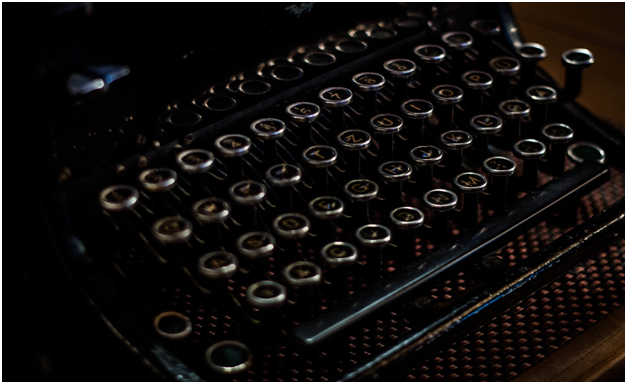Under the copyright laws in the U.S. and any other country in the world, a writer has authorship rights to their original work. If someone wrote a book too similar to yours after you publish your work, you would be protected by copyright law.
Published authors usually have legal representatives. The publisher takes care of these things. But what happens when you’re a self-published writer? No worries; you don’t need a law degree to understand how your legal rights work. All it takes is some research.
We’ll give you the starting points.
1. Your Book Needs a Copyright Page
Go ahead and open the first book you find around you. You’ll find the copyright page right away; it’s usually behind the title page. Self-published authors often skip it. They are too focused on their work and the title page. You’re not required to have this page since the copyright of published work exists even without registration. But if you need to pursue legal action in the future, of course, the work has to be registered.
This page contains few elements: information about the edition and publication, copyright notice, legal notices, cataloging data, and the identification number of the book (ISBN).
Behind that text that seems simple, there’s a process of registration. We’ll get to that point. But if you need help to compose this page, you can turn to the legal experts and writers at Essay Writing Lab.
2. About the ISBN Number
This is the International Standard Book Number, which is mandatory for commercially-sold books. It isn’t necessary for eBooks, but it’s highly recommended.
You’ll need a separate ISBN number for each version of the book you publish. If you want to have both printed and eBook versions, they will need unique ISBN numbers. If you edit the book for a second publication, it will have a different identification number.
How do you get one? You’ll need to contact the ISBN agency in your country. It’s easy. Just contact them and you’ll get things done before you publish the book.
3. Publish Your Book through a Safe Platform
Amazon KDP is the usual choice for authors who want to sell their work in the form of eBooks or print. If you want your book sold in bookstores on international locations, you’ll need an IngramSpark account.
Why is it important to use the right platform? Can’t you just share a PDF anywhere?
When you use a safe platform as the ones we mentioned, you’ll be getting royalty payments from sales and you’ll give your tax information.
4. Think about the Disclaimer
We see disclaimers all the time. Whenever we watch a movie, there’s a disclaimer like “All characters are fictitious. Any resemblance to actual persons, living or dead, or actual events is purely coincidental.”
That disclaimer is so common that we think it means nothing. They put it there just because.
It’s there for a reason, and your book needs it, too. You need it for any kind of book, be it fiction, non-fiction, memoir, or anything else.
5. Know Your Rights
Your work is protected by copyright law. If anyone uses without permission and without referencing it, you have a solid foundation to start a legal procedure. Remember: no one has the right to distribute, reproduce, perform, or display your work without your explicit permission.
To understand your rights as a writer, you’ll need to read the law. It’s nothing complicated. Pay attention to each term. You probably have a friend who knows legal terms, so you can talk to them in case you need some clarification.
If you get in a situation to defend your copyright, you’ll need a lawyer. Self-published authors tend to believe they can do everything by themselves. But if you’re not a legal expert, you’ll probably need advice by one. Still, it’s important for you to get informed about your rights before seeking such assistance.
Be Careful about Violating Copyright, Too
When you focus on protecting your work, think: did you unintentionally violate someone else’s copyright? Fair use of someone else’s work is allowed, but it’s a limited category. It means using the work for criticizing it or commenting on it. Parody is also considered as fair use. You can do it without permission of the owner of the copyright, but you must still reference it.
Some materials don’t require permission: facts, interviews, government publications, or anything else in the public domain. They still require references, though.
Before you intend to use anything someone else wrote or said, you have to make sure you’re not violating their legal rights.
Why should you go through all this work just to publish a book? Shouldn’t it be easy when you’re doing it by yourself? The self-publishing industry is serious. You can’t write anything and hit the Publish button to get it done. There is a legal aspect to it, and you have to be aware of your rights and responsibilities as an author.
Lauren Adley is a writer and editor at Essayshark and Bestessays.com.au. She is dedicated to her family, work and friends. She is keen on reading, playing the guitar and traveling. She is interested in educational, marketing and blogging issues. Feel free to connect with her on Twitter.




